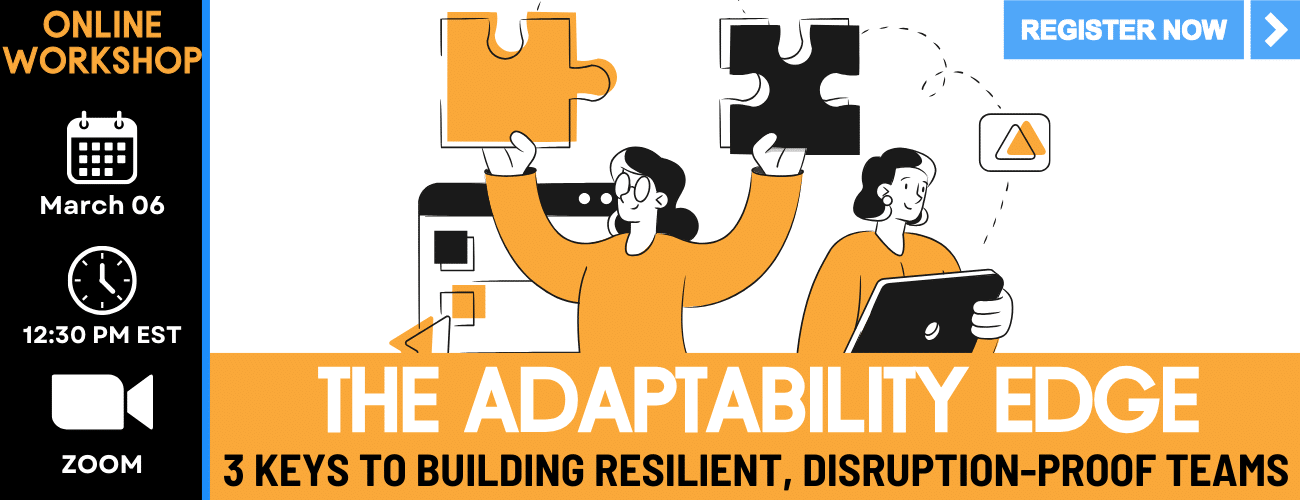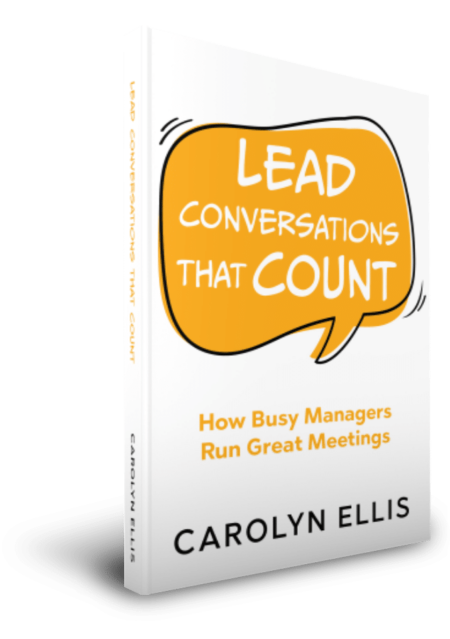Don’t have time to read? Click here to listen instead!


The Power of Acknowledging Others
Excerpt from Lead Conversations that Count: How Busy Managers Run Great Meetings
(Rowntree Press, 2021)
Acknowledging people’s contributions and perspectives confirms that they were heard and valued. It’s how we demonstrate respect. Have you ever spoken up to give an idea, and the Conversation Leader just continued? Whether your idea was ignored entirely, or the group leader ran with it without even a nod in your direction, the lack of acknowledgement creates disconnection and a disinclination to offer your input as freely or enthusiastically the next time. A simple “Thank you for that contribution!” or referring back to you as the originator of the initiative as the conversation evolves will often suffice. Don’t take others for granted. Regularly acknowledging their input helps ensure you’ll continue to get it.
Be mindful of how you acknowledge others, particularly when you are leading the conversation. You have significant positional authority, and your response can easily skew the way people interact. For example, I was working with a client I’ll call Lara, who was facilitating a senior leadership team meeting to tackle challenging staffing and funding issues. Lara had structured the agenda and asked who had ideas to offer.
Joe spoke up and suggested one solution. “That’s a great idea!” exclaimed Lara. She then started to ask Joe for more details on how his solution might work, as Joe’s colleagues around the table nodded their heads. After Lara and Joe finished their discussion, Lara turned to the rest of the group and asked, “Who else has an idea?” Tamar raised her hand and gave a different idea. “Ok, I guess that might work,” Lara said. She tapped her pen against her paper and then asked, “Who else has something to offer?” I wasn’t the only person to see Tamar’s shoulders slump as she pushed her chair back slightly from the meeting table.
Lara’s role was to support a conversation among the members of the senior leadership team. Yet the way she acknowledged each idea clearly telegraphed how she judged its merits. Instead of a group discussion, Lara turned the conversation into a series of one-to-one chats with a specific person on the team while everyone else watched. Instead of managing the conversation space, Lara had put herself in the centre, acting as the traffic cop on people’s ideas, deciding which had merit and which didn’t.
Judging and evaluating input leads to performative participation, not innovation or breakthrough thinking. Anything you say in response to a contribution, whether positive or negative, will impact the group as a whole, not just the individual who contributed.
When you lead Conversations that Count, you leverage the collective wisdom, experience and perspectives of everyone in the room. No one has all the answers; we only hold one piece of the puzzle. When everyone puts their pieces on the table, we start to see and understand the picture together.
As Ken Blanchard reminds us, “None of us is as smart as all of us.”
Take Action
Take time today to make at least 1 acknowledgement of another person. Speak from your heart and really let that person know how their idea, action or contribution impacted you or the situation you are working on.
On a scale of 1-10, with 1 being “I never do this” and 10 being “Acknowledging others is as natural to me as breathing”, assess your current practice of acknowledging others. Teachers often use the concept of “catching someone in the act of doing something good” to teach young students about the importance of acknowledging others. What would you need to do to take it up a notch and catch someone in the act of doing something good today?
Resources
Christine Grimm, “Why Acknowledgement and Appreciation Matter for You and Your Team,” Forbes January 27, 2021
Author Information: This is an excerpt from Lead Conversations that Count: How Busy Managers Run Great Meetings by Carolyn Ellis (Rowntree Press, 2021). For more information on the book, please visit www.LeadConversationsThatCount.com. This article may be shared provided the author information is included.




